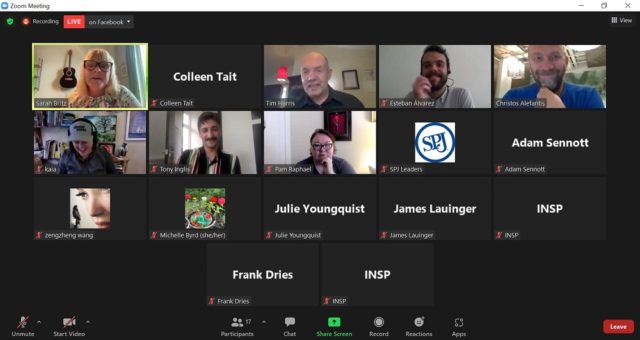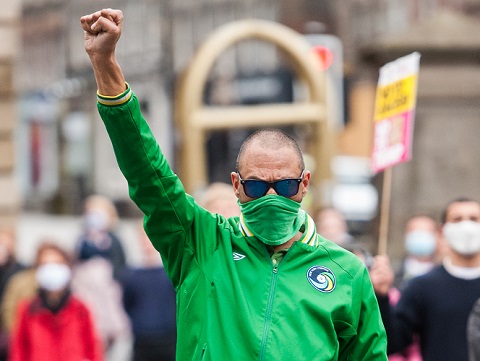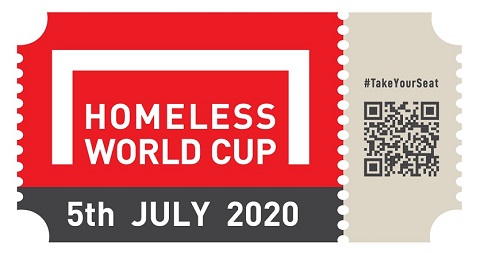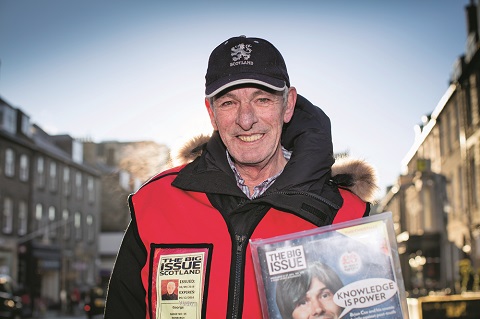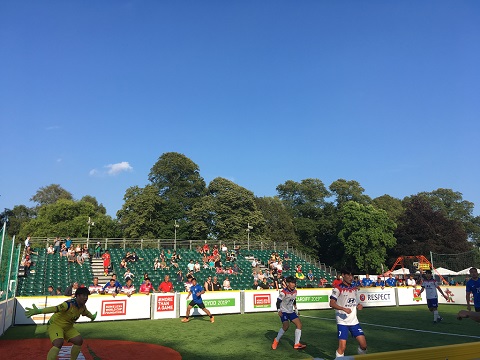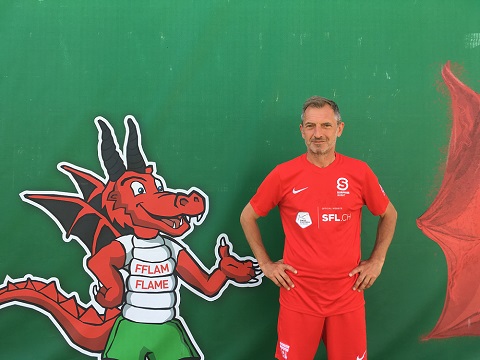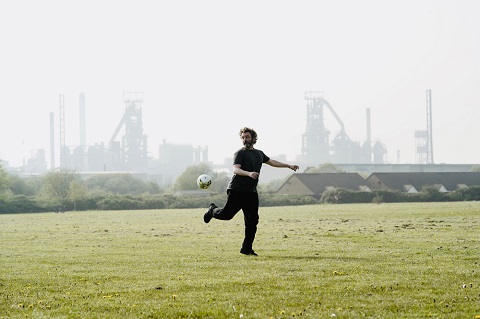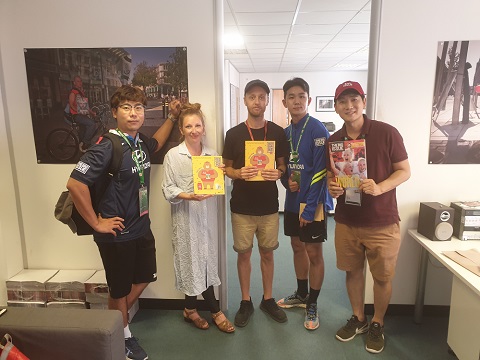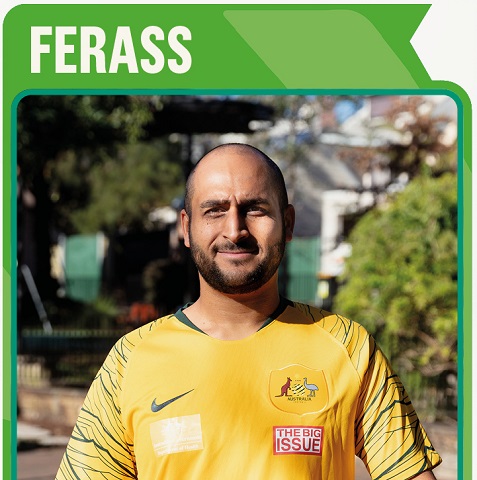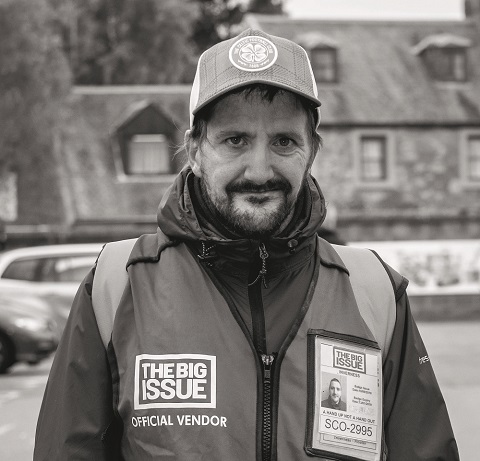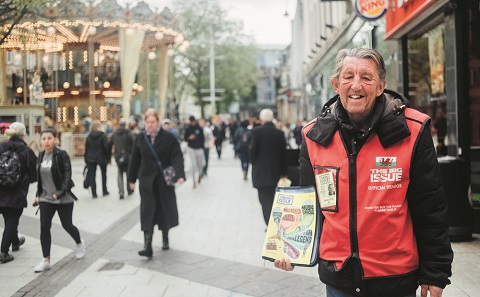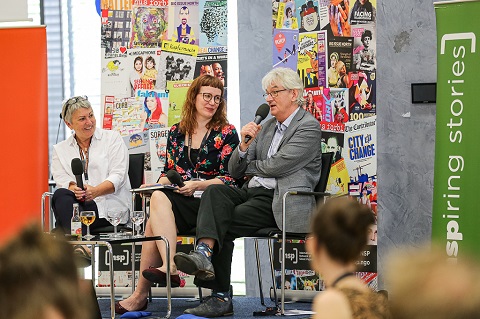As INSP is based in Scotland, it was essential that the nation’s games at the 2019 Homeless World Cup – an annual event that brings people experiencing, and on the verge of, homelessness, and all the social issues that surround that, together to play soccer against similar individuals with collective similar experiences from across the globe – hosted in Cardiff, be well attended. Attending day six of the tournament, Scotland were set to play South Africa and, later, France.
The team, chosen from participants at Street Soccer Scotland, were vocal and visible throughout the day, whether playing or not – they turned out in numbers to support Ireland in the day’s first match in a show of solidarity and camaraderie that, as was apparent throughout the day, is common at the Homeless World Cup.
One of the team’s players, Gary Godfrey, was leading by example. It was his role after all, as the team’s captain.
![Gary Godfrey [Credit: Street Soccer Scotland]](https://hub.insp.ngo/wp-content/uploads/2019/08/INSP_Scotland_HWC_1.jpg)
The last year had been a long journey for Gary, he explained between playing and celebrating. He had got involved with Street Soccer Scotland after moving back to his home city of Glasgow after some time in Newcastle in the north of England.
“When I got back, I found myself in a hostel,” he says. “I didn’t get to that much of a bottom that I ended up on the street, but I was homeless in terms of I didn’t have a house. I had spent time couch-surfing, living with my mum, all borne out of years of substance abuse and alcohol misuse.”
Part of the reason Gary, 27, moved back was hearing about the football project. Street Soccer Scotland, as with most of the projects and programmes attached to the nation teams participating in the Homeless World Cup, works with disadvantaged and marginalised members of society, using football as a tool to bring people together and find a space to get away from many of life’s problems for 90 minutes on the pitch. For many of them, as can be the case for professional athletes and fans alike, the power of sport is transformative.
Now, Gary is in recovery, a year sober. “All that led me to was not being able to get in anywhere, people turning their back on me. For the past five years or so, homelessness has just been in and out of my life. I’ve had periods where I’ve had accommodation permanently and then just gave it up, threw it all away due to drugs and alcohol. It always led back to those two things. My house came second, my rent came second.”
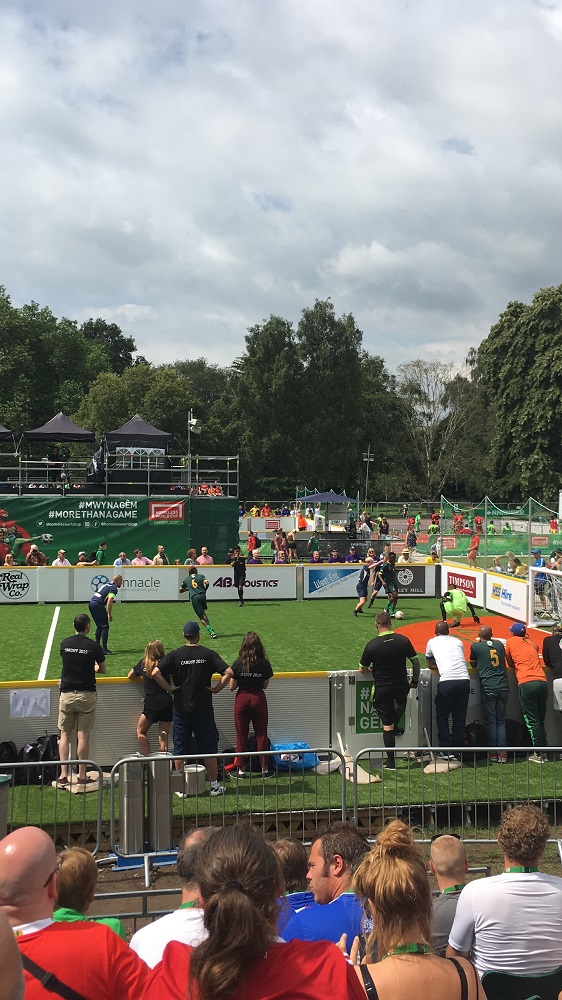
He is proud to say it’s nothing like that now. After spending three months in a hostel, Gary, who is a former member of the British Royal Air Force, moved into temporary veteran’s accommodation. The day before arriving in Wales for the tournament, he received keys to an apartment. When he returns, he’ll have a job and be able to see his daughter who, he says, has been in and out of his life.
As we speak, he is captaining his country in an international tournament. “Football has always been a massive thing for me since a young age. From the age of four or five, I’ve had a ball at my feet. Even in my roughest times, I’ve always managed to play football – it’s always got me out of my own head for an hour or two. So, in terms of forgetting about stuff and letting it all go and concentrating on football, that was my escapism. It’s been a massive help all through my life.”
Scotland have a good reputation at the Homeless World Cup as former winners, and having played host to the 2016 competition. Winning may not be everything at an event like this, Gary is keen to point out, but he takes his role seriously. “There’s a couple of younger boys in the team who I’ve had to put my arm around and step up. I was a little frightened at first – I’ve never captained a team, especially my country, and there’s a lot of expectation.
“Some people would say ‘it’s only the Homeless World Cup’, but it’s still a great achievement. It’s had this added thing of taking me away from myself because I’m having to think for and about other people, and so I’m not getting stuck with my own problems, which I don’t have a lot of at the moment anyway. It’s good to be able to help other people for once because for the last 12 years I’ve kind of been selfish to the core.”
![Gary Godfrey [Credit: Street Soccer Scotland]](https://hub.insp.ngo/wp-content/uploads/2019/08/INSP_Scotland_HWC_2.jpg)
Earlier in the day, Street Soccer Scotland’s CEO David Duke explains that the team isn’t always picked on who is the best. This year, Gary says, the team have come together, and are a microcosm of what the event is supposed to represent as a whole. “My relationships with my teammates are so important. You’ve all got common ground to start with, even with the other teams – you’ve got language barriers but you’ve all experienced some sort of hardship, and you’ve got the other common ground of football. So, on a team level, personally we’ve got a very good rapport. We’ve only known each other a few months, and only done a couple of training sessions, whereas some train all year for it. But we very quickly gelled.”
On the day INSP visited Cardiff’s Bute Park, Scotland fell to two defeats – one of them, against France, an agonisingly close encounter that ended 7-6. But, as Gary is an example of, the people taking part can hold their heads very high.





